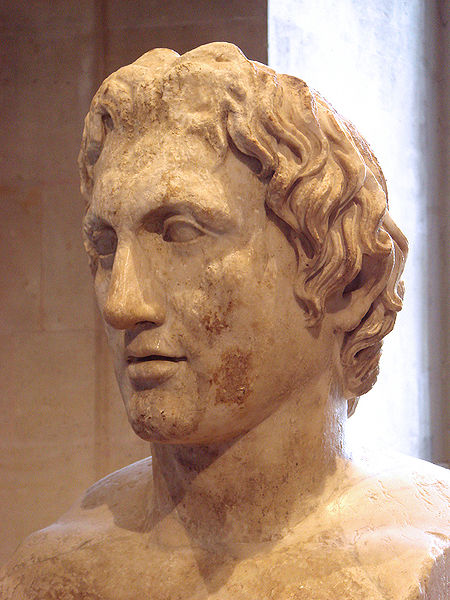The Oath of Alexander the Great
I wish all of you, now that the wars are coming to an end, to live happily in peace.
All mortals from now on shall live like one people, united, and peacefully working towards
a common prosperity. You should regard the whole world as your country, a country where
the best govern, with common laws, and no racial distinctions. I do not separate people,
as many narrow-minded others do, into Greeks and barbarians. I am not interested in the
origin or race of citizens, I only distinguish them on the basis of their virtue. For me,
each Foreigner is a Greek, and each bad Greek is a barbarian. If ever there appear
differences among you, you must not resolve them by taking to arms; you should resolve
them in peace. If need be, I shall act as your negotiator.
You must not think of God as an authoritarian ruler, but you should consider him a
common father, so that your conduct resembles the uniform behaviour of brothers who belong
to the same family.
For my part, I consider all, whether they be white or black, equal.
And I would like you to be not only subject to my Commonwealth, but also participants and
partners. You should regard the Oath we have taken tonight as a Symbol of Love.

We think that probably says more about the man than the facts
themselves.
The facts are that he was from Macedonia (a part of what is now
Greece) and lived from 356 bc to 323 bc. He died aged only 32. He was
the third Alexander to rule and was followed by Alexander IV. He was
schooled by the famous philosopher Aristotle.
He was awarded the ' Generalship of Greece ' when he inherited the
throne from his murdered father Philip II of Macedonia.

This bust was in the Former collection
of Feliz de Azara; given to Napoléon Bonaparte; gift of
N. Nonaparte to the Louvre, 1803 - it is a
Hermes-type bust (pillar with
the top as a sculpted head) of Alexander the Great
called Hermes Azara. Bears the inscription: "Alexander
[the Great], son of Philip, [king of]
Macedonia." Copy of the Imperial Roman Era (1st or
2nd century CE) of a bronze sculpture made by Lysippos.
Found in Tivoli, East of Rome, Italy. Pentelic marble,
region of Athens.
Another famous son of Macedonia was King Midas, the mythological king
who turned everything he touched to gold.
|
